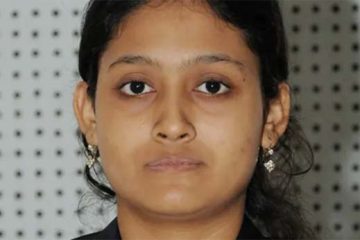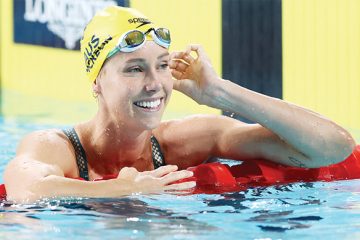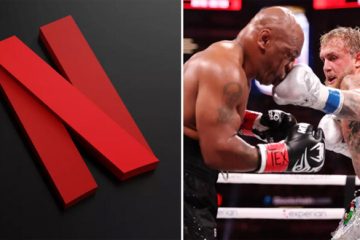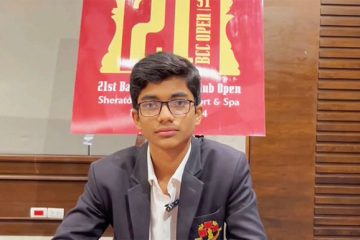He’d toyed with the idea for months. “I’d say something,” Syque Caesar recalls, “and then I’d never really do anything about it.”
But now that he has — and who’s to say what provided the final push? — the Michigan gymnast is happy to say something else: This Olympic journey is proving to be equal parts exhilarating and enlightening, reports The Detroit News.
Caesar, 21, is in London representing his parents’ native country of Bangladesh after he took a leap of faith and was granted dual citizenship last year. And while he braces for the start of the men’s competition today at North Greenwich Arena, Caesar — a two-time captain for the Wolverines — is undeniably brimming with pride.
“In terms of feeling my cultural roots and really hitting home for me, it didn’t hit me until last December,” Caesar said, referring to the Central South Asian Gymnastics Championships held in Bangladesh.
It was there where he won his country’s first international gold medal in gymnastics. It was also there he began to fully grasp what this whole thing meant — and not just to him.
“I really felt pride for my country, for Bangladesh, competing for them,” said Caesar, a 2011 Big Ten champion on the parallel bars. “Having an entire country, basically, uniting for a sport as unpopular as gymnastics? I mean, the crowd was going nuts, and after I won the gold medal there, people were literally in tears. I couldn’t get my head wrapped around that fact, understanding how proud they were — and how proud they were of me.”
Now, though, he understands. And as he marched into the Olympic Stadium on Friday night, one of five athletes here representing Bangladesh, the world’s most populous nation without an Olympic medal, well, that’s a feeling that’ll take some time to process.
“This is my parents’ homeland,” said Caesar, whose father, Quazi, and mother, Rezina, moved to the U.S. in the 1980s. “They had the opportunity to come to the United States and give me the life I’ve been given. And to be born and raised in the U.S., but raised as a Bangladeshi person culturally, I’ve come to realize this is a great way for me to give back to my roots and give back to my country.”
It’s a great excuse for a family reunion, too, they all soon realized. Aunts, uncles and cousins have flown in from Bangladesh.
Caesar is bunking with his coach, Michigan assistant Geoff Corrigan, in the athletes’ village. And if you’re looking for their room, it’s really hard to miss: It’s the one with the block ‘M’ flag in the window.
Early bloomer
Caesar, an energetic kid growing up, almost literally stumbled into gymnastics at the age of 6, when he and his father saw a flyer about a youth club on a trip to the mall near their home in Port St. Lucie, Fla.
“My dad asked me if I wanted to try it, and I said, ‘Sure, why not?'” Caesar recalls.
As with most Olympic athletes, there were quite a few “Why?” moments in the ensuing years. But Quazi, who’d played for the national soccer team in Bangladesh before getting married and starting a family, encouraged his son to stick with it. Even after a torn ACL his junior year in high school appeared to scrap his plans of earning an athletic scholarship to college.
Unable to show his wares at the National Junior Olympic meet in 2007, Caesar was left to send recruiting tapes his senior year. But the phone didn’t ring in return. In fact, he’d already settled on an academic scholarship to attend Florida when Kurt Golder, the Michigan men’s coach, called out of the blue in the summer of 2008.
Golder had been tipped off to Caesar’s talent and potential by one of his former coaches, John Hallett, in a chance meeting at a national meet. Caesar had applied to Michigan, but it was Golder’s interest that eventually got him through the door. And to hear Caesar talk now, it’s that invitation from Michigan that kept him in the sport.
“If I hadn’t come to Michigan, I certainly don’t think I’d have made it this far,” he said.
Pain and toil
As for how far he can take it now, that’ll depend a bit on his broken-down body. The latest in a long list of injuries is a torn left biceps he suffered in training two weeks ago in Ann Arbor.
The good news is that’s all he tore. And that the muscle didn’t retract and roll down to his elbow. That’s what happened back in January when he ripped his right biceps off the bone and also had a torn labrum in his shoulder, effectively ending his senior season.
“It definitely changed my training plan,” said Caesar, who had to give up his intentions of competing in the men’s all-around, dropping the rings and the pommel horse.
That still leaves his four strongest events — floor exercise, vault, parallel bars and horizontal bar. It also presents a new challenge.
“The question now is just, ‘How mentally strong are you to push through it?'” said Caesar, who also endured another torn ACL his sophomore year in Ann Arbor. “It’s just so frustrating, you know? Emotionally, it’s like, ‘Did this really have to happen now? What have I done wrong?’
“But the way I’m trying to handle it is this isn’t something that’s defining my gymnastics, or defining me.”
The injuries won’t, no. The journey might, at least in some small way.
“It may not have been the way I wanted, or maybe it’s just in a different way,” Caesar said. “But I got to where I wanted to go.”
-With unbconnect.com input





